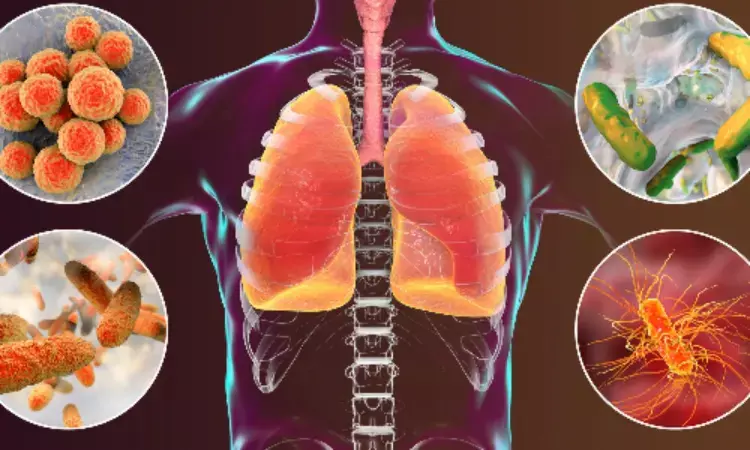- Home
- Medical news & Guidelines
- Anesthesiology
- Cardiology and CTVS
- Critical Care
- Dentistry
- Dermatology
- Diabetes and Endocrinology
- ENT
- Gastroenterology
- Medicine
- Nephrology
- Neurology
- Obstretics-Gynaecology
- Oncology
- Ophthalmology
- Orthopaedics
- Pediatrics-Neonatology
- Psychiatry
- Pulmonology
- Radiology
- Surgery
- Urology
- Laboratory Medicine
- Diet
- Nursing
- Paramedical
- Physiotherapy
- Health news
- Fact Check
- Bone Health Fact Check
- Brain Health Fact Check
- Cancer Related Fact Check
- Child Care Fact Check
- Dental and oral health fact check
- Diabetes and metabolic health fact check
- Diet and Nutrition Fact Check
- Eye and ENT Care Fact Check
- Fitness fact check
- Gut health fact check
- Heart health fact check
- Kidney health fact check
- Medical education fact check
- Men's health fact check
- Respiratory fact check
- Skin and hair care fact check
- Vaccine and Immunization fact check
- Women's health fact check
- AYUSH
- State News
- Andaman and Nicobar Islands
- Andhra Pradesh
- Arunachal Pradesh
- Assam
- Bihar
- Chandigarh
- Chattisgarh
- Dadra and Nagar Haveli
- Daman and Diu
- Delhi
- Goa
- Gujarat
- Haryana
- Himachal Pradesh
- Jammu & Kashmir
- Jharkhand
- Karnataka
- Kerala
- Ladakh
- Lakshadweep
- Madhya Pradesh
- Maharashtra
- Manipur
- Meghalaya
- Mizoram
- Nagaland
- Odisha
- Puducherry
- Punjab
- Rajasthan
- Sikkim
- Tamil Nadu
- Telangana
- Tripura
- Uttar Pradesh
- Uttrakhand
- West Bengal
- Medical Education
- Industry
Colistin nebulization improves clinical outcomes in ICU-admitted patients with nosocomial pneumonia

Taiwan: A study published in the Annals of Intensive Care has concluded that the patients treated with substitutive nebulized colistin have a lower rate of clinical failure and a similar mortality rate. The researchers reported comparable treatment outcomes and risk of nephrotoxicity based on patients treated with high- and low-dose nebulized colistin.
The researchers included critically ill patients with hospital-acquired pneumonia/ventilator-associated pneumonia (HAP/VAP caused by carbapenem-resistant Gram-negative bacteria (CR-GNB).
It is already known that nephrotoxicity is the most common adverse reaction of most significant concern reported with intravenous colistin treatment. There needs to be more data on the descriptive and relevant role of substitutive nebulized colistin for managing patients with nosocomial pneumonia caused by CR-GNB in critically ill patients.
Considering this, team of researchers led by Jia-Yih Feng investigated the effectiveness of substitutive nebulized colistin clinically in treatment outcomes of nosocomial pneumonia caused by CR-GNB. The researchers also explored the impact of the dosing strategy of nebulized colistin.
The study summary is given as follows:
- The study included subjects without intravenous colistin treatment.
- The subjects were categorized based on substitutive nebulized colistin use alongside IV antibiotics.
- Between the two groups, a comparison was made between clinical responses and the mortality rate.
- The study included 343 and 214 patients with and without substitutive nebulized colistin, respectively.
- The clinical failure rate on days 7, 14 and 28 was 22.6 vs 42.6%, 27.0 vs 42.6% and 27.8 vs 41.7%. (PS matched cohort). This was lower in patients with nebulized colistin.
- Nebulized colistin was an independent factor which was associated with lower day 14 clinical failure.
- The Original cohort had an adjusted odds ratio (aOR) of 0.45
- The PS-matched cohort had aOR of 0.48.
- The clinical failure rate and mortality rate had no difference between patients receiving high (> 6 MIU/day) and low (≤ 6 MIU/day) doses of nebulized colistin in the PS-matched cohort.
To conclude, the study reports substitutive nebulized colistin with better clinical outcomes. Our findings are only applicable in endemic HAP/VAP caused by CR-GNB, mainly CRAB, they said.
The researchers wrote that a further prospective study is required elucidate the clinical benefits of substitutive nebulized colistin, including the application of high-dose nebulized colistin in specific populations.
Further reading:
Feng et al. role of nebulized colistin as a substitutive strategy against nosocomial pneumonia caused by CR-GNB in intensive care units: a retrospective cohort study. Ann. Intensive Care 13, 1 (2023). https://doi.org/10.1186/s13613-022-01088-4
BDS, MDS in Periodontics and Implantology
Dr. Aditi Yadav is a BDS, MDS in Periodontics and Implantology. She has a clinical experience of 5 years as a laser dental surgeon. She also has a Diploma in clinical research and pharmacovigilance and is a Certified data scientist. She is currently working as a content developer in e-health services. Dr. Yadav has a keen interest in Medical Journalism and is actively involved in Medical Research writing.
Dr Kamal Kant Kohli-MBBS, DTCD- a chest specialist with more than 30 years of practice and a flair for writing clinical articles, Dr Kamal Kant Kohli joined Medical Dialogues as a Chief Editor of Medical News. Besides writing articles, as an editor, he proofreads and verifies all the medical content published on Medical Dialogues including those coming from journals, studies,medical conferences,guidelines etc. Email: drkohli@medicaldialogues.in. Contact no. 011-43720751


